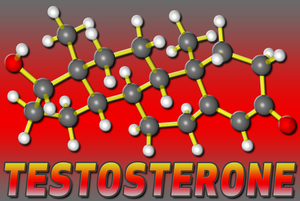Introduction to Striant
Striant, known scientifically as the Testosterone Buccal System, is a unique form of testosterone replacement therapy designed for men suffering from hypogonadism. This condition, characterized by low testosterone levels, can significantly impact a man's quality of life, affecting everything from mood and energy levels to sexual function and fertility. As a buccal system, Striant is applied to the gum above the incisor, where it adheres and releases testosterone into the bloodstream. Given its direct impact on hormonal levels, understanding its effects on fertility and reproductive health is crucial, particularly for American males considering this treatment.
The Role of Testosterone in Male Fertility
Testosterone plays a pivotal role in male reproductive health. It is essential for the development of male reproductive tissues, including the testes and prostate, as well as for the production of sperm. Optimal levels of testosterone are necessary for maintaining libido, achieving and maintaining erections, and ensuring the quality and quantity of sperm. Therefore, any alteration in testosterone levels, such as those induced by Striant, can have significant implications for male fertility.
Striant's Impact on Sperm Production
Research into the effects of Striant on sperm production has yielded mixed results. Some studies suggest that testosterone replacement therapy, including Striant, can lead to a decrease in sperm production. This occurs because exogenous testosterone can inhibit the body's natural production of gonadotropins, hormones that stimulate the testes to produce testosterone and sperm. As a result, men using Striant might experience a reduction in sperm count, which could impact fertility.
However, it's important to note that not all men will experience a significant decrease in sperm production while using Striant. Factors such as the individual's baseline testosterone levels, the duration of treatment, and the presence of other health conditions can influence the extent to which Striant affects fertility. Therefore, men considering Striant should discuss their fertility goals with a healthcare provider to understand the potential risks and benefits.
Striant and Reproductive Health Beyond Fertility
Beyond its impact on sperm production, Striant can influence other aspects of male reproductive health. For instance, adequate testosterone levels are crucial for maintaining sexual function, including libido and erectile function. Men using Striant often report improvements in these areas, which can enhance their overall quality of life and sexual satisfaction.
Moreover, Striant can affect prostate health. Testosterone is known to influence prostate growth, and while Striant is generally considered safe for men without pre-existing prostate conditions, those with a history of prostate issues should use it cautiously. Regular monitoring by a healthcare provider is essential to ensure that Striant does not adversely affect prostate health.
Navigating Striant Use and Fertility Preservation
For American males concerned about the potential impact of Striant on fertility, several strategies can be employed to preserve reproductive potential. One approach is to use Striant intermittently rather than continuously, allowing the body's natural testosterone production to resume periodically. Another strategy involves the use of medications that can stimulate sperm production, such as human chorionic gonadotropin (hCG), in conjunction with Striant.
Men who wish to conceive while using Striant should consult with a fertility specialist. Such experts can provide personalized advice and may recommend fertility testing before and during treatment to monitor sperm health. In some cases, sperm banking prior to starting Striant may be advisable to preserve fertility options.
Conclusion: Balancing Benefits and Risks
Striant offers significant benefits for men with hypogonadism, improving symptoms and enhancing quality of life. However, its impact on fertility and reproductive health requires careful consideration. American males considering Striant should engage in thorough discussions with healthcare providers to weigh the potential benefits against the risks to fertility. With informed decision-making and appropriate monitoring, men can navigate the use of Striant while safeguarding their reproductive health.
Contact Us Today For A Free Consultation

- Striant: Testosterone Buccal System - Side Effects, Safety, and Monitoring for American Males [Last Updated On: March 18th, 2025] [Originally Added On: March 18th, 2025]
- Striant: Innovative Buccal Testosterone Therapy for Young American Males with Hypogonadism [Last Updated On: March 18th, 2025] [Originally Added On: March 18th, 2025]
- Striant: Enhancing Vitality in Aging American Men Through Testosterone Therapy [Last Updated On: March 18th, 2025] [Originally Added On: March 18th, 2025]
- Striant: Innovative Buccal Testosterone Therapy for American Men with Hypogonadism [Last Updated On: March 19th, 2025] [Originally Added On: March 19th, 2025]
- Striant: Innovative Buccal System for Testosterone Replacement in American Men [Last Updated On: March 19th, 2025] [Originally Added On: March 19th, 2025]
- Striant: Enhancing Muscle Growth and Fat Loss in American Males [Last Updated On: March 19th, 2025] [Originally Added On: March 19th, 2025]
- Striant Therapy: Monitoring Testosterone, Hematocrit, and Prostate Health in American Men [Last Updated On: March 20th, 2025] [Originally Added On: March 20th, 2025]
- Striant: Innovative Buccal Testosterone Therapy for American Men's Health [Last Updated On: March 21st, 2025] [Originally Added On: March 21st, 2025]
- Striant: A Convenient Buccal Solution for American Men's Testosterone Therapy [Last Updated On: March 21st, 2025] [Originally Added On: March 21st, 2025]
- Striant: Enhancing Mood and Cognitive Function in American Men via Testosterone Therapy [Last Updated On: March 21st, 2025] [Originally Added On: March 21st, 2025]
- Striant: Innovative Buccal System Boosts Energy in Men with Low Testosterone [Last Updated On: March 22nd, 2025] [Originally Added On: March 22nd, 2025]
- Striant: A Buccal Testosterone Solution for Muscle Wasting in American Males [Last Updated On: March 22nd, 2025] [Originally Added On: March 22nd, 2025]
- Striant and Diabetes: Managing Testosterone and Blood Sugar in American Males [Last Updated On: March 22nd, 2025] [Originally Added On: March 22nd, 2025]
- Striant Buccal System: Optimizing Testosterone Therapy for American Men [Last Updated On: March 22nd, 2025] [Originally Added On: March 22nd, 2025]
- Striant: Non-Invasive TRT Option for American Men with Hypogonadism [Last Updated On: March 22nd, 2025] [Originally Added On: March 22nd, 2025]
- Striant: Empowering American Men Against Age-Related Testosterone Decline [Last Updated On: March 22nd, 2025] [Originally Added On: March 22nd, 2025]
- Striant: Effective Testosterone Therapy for Andropause in American Men [Last Updated On: March 23rd, 2025] [Originally Added On: March 23rd, 2025]
- Striant: Enhancing Sleep Quality in American Males with Testosterone Deficiency [Last Updated On: March 23rd, 2025] [Originally Added On: March 23rd, 2025]
- Striant: Enhancing Life Post-Prostatectomy with Buccal Testosterone Therapy [Last Updated On: March 24th, 2025] [Originally Added On: March 24th, 2025]
- Striant: Revolutionizing Testosterone Therapy for American Males' Sexual Health [Last Updated On: March 24th, 2025] [Originally Added On: March 24th, 2025]
- Striant: Enhancing Bone Health in American Men with Low Testosterone [Last Updated On: March 24th, 2025] [Originally Added On: March 24th, 2025]
- Striant: Enhancing Vision and Eye Health in American Men Through Testosterone Therapy [Last Updated On: March 24th, 2025] [Originally Added On: March 24th, 2025]
- Striant: Enhancing Immune Health in American Men via Testosterone Replacement Therapy [Last Updated On: March 24th, 2025] [Originally Added On: March 24th, 2025]
- Striant: Enhancing Respiratory Health in American Men via Buccal Testosterone Therapy [Last Updated On: March 24th, 2025] [Originally Added On: March 24th, 2025]
- Striant: Enhancing Athletic Performance and Recovery in American Men [Last Updated On: March 24th, 2025] [Originally Added On: March 24th, 2025]
- Striant: Enhancing Health in Men with Metabolic Syndrome Through Testosterone Therapy [Last Updated On: March 25th, 2025] [Originally Added On: March 25th, 2025]
- Striant: Enhancing Stress Management and Resilience in American Men with Low Testosterone [Last Updated On: March 25th, 2025] [Originally Added On: March 25th, 2025]
- Striant: Enhancing Men's Kidney and Urinary Health Through Testosterone Therapy [Last Updated On: March 25th, 2025] [Originally Added On: March 25th, 2025]
- Striant: Enhancing Men's Liver Health via Buccal Testosterone Delivery [Last Updated On: March 25th, 2025] [Originally Added On: March 25th, 2025]
- Striant: A Novel Adjunct in Managing Male Pattern Baldness [Last Updated On: March 25th, 2025] [Originally Added On: March 25th, 2025]
- Striant Buccal System: Effective Testosterone Therapy for Hypogonadism in American Men [Last Updated On: March 25th, 2025] [Originally Added On: March 25th, 2025]
- Striant: A Lifeline for American Men Battling Chronic Fatigue from Low Testosterone [Last Updated On: March 26th, 2025] [Originally Added On: March 26th, 2025]
- Striant: Advancing Testosterone Therapy for American Men's Health and Vitality [Last Updated On: March 26th, 2025] [Originally Added On: March 26th, 2025]
- Striant: Revolutionizing Testosterone Therapy for American Males with Hypogonadism [Last Updated On: March 26th, 2025] [Originally Added On: March 26th, 2025]
- Striant: Enhancing Mental Health in American Men with Testosterone Therapy [Last Updated On: March 26th, 2025] [Originally Added On: March 26th, 2025]
- Striant: Innovative Buccal System for Testosterone Deficiency in American Men [Last Updated On: March 26th, 2025] [Originally Added On: March 26th, 2025]
- Striant Buccal System: Effective Testosterone Therapy for American Males [Last Updated On: March 26th, 2025] [Originally Added On: March 26th, 2025]
- Striant: Enhancing Cardiovascular Health in American Men with Hypogonadism [Last Updated On: March 26th, 2025] [Originally Added On: March 26th, 2025]
- Striant: Testosterone Therapy's Potential in Enhancing Men's Auditory Health [Last Updated On: March 27th, 2025] [Originally Added On: March 27th, 2025]
- Striant: Revolutionizing Testosterone Therapy for American Men's Hormonal Health [Last Updated On: March 27th, 2025] [Originally Added On: March 27th, 2025]
- Striant: Enhancing Digestive Health in American Men Through Testosterone Therapy [Last Updated On: March 27th, 2025] [Originally Added On: March 27th, 2025]
- Striant: Advancing Men's Health with Buccal Testosterone Therapy [Last Updated On: March 27th, 2025] [Originally Added On: March 27th, 2025]
- Striant: Enhancing Fertility in American Men with Testosterone Deficiency [Last Updated On: March 27th, 2025] [Originally Added On: March 27th, 2025]
- Striant: Revolutionizing Men's Skin Health with Testosterone Therapy [Last Updated On: March 28th, 2025] [Originally Added On: March 28th, 2025]
- Striant: Enhancing Joint Health and Mobility in American Men with Low Testosterone [Last Updated On: March 28th, 2025] [Originally Added On: March 28th, 2025]
- Striant: Testosterone Therapy's Impact on Dental Health and Oral Care Strategies [Last Updated On: March 28th, 2025] [Originally Added On: March 28th, 2025]
- Striant: Enhancing Weight Management in American Men via Testosterone Therapy [Last Updated On: March 28th, 2025] [Originally Added On: March 28th, 2025]
- Striant: Enhancing Musculoskeletal Health in American Men Through Testosterone Therapy [Last Updated On: March 31st, 2025] [Originally Added On: March 31st, 2025]
Word Count: 620





















